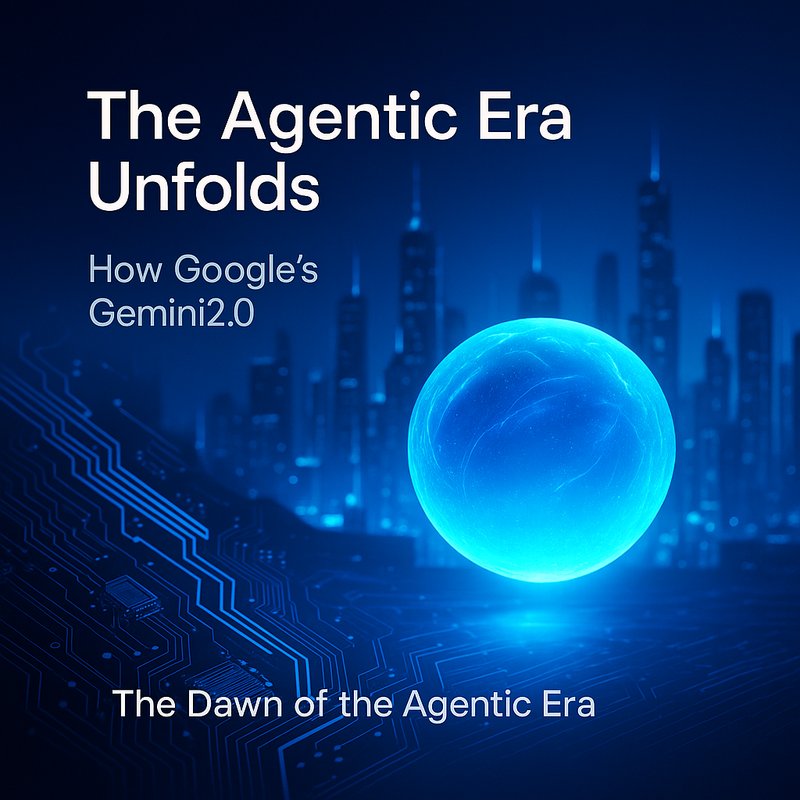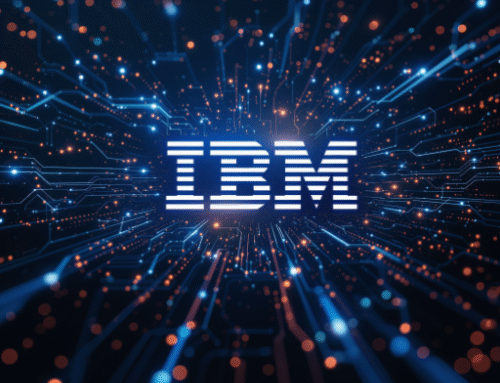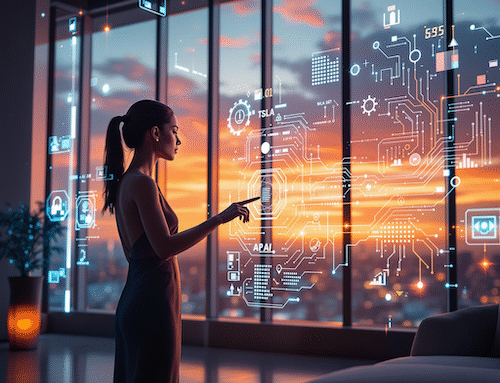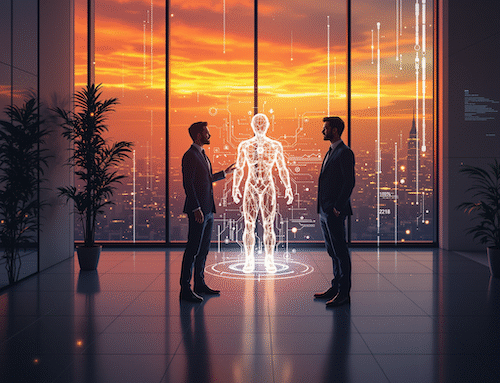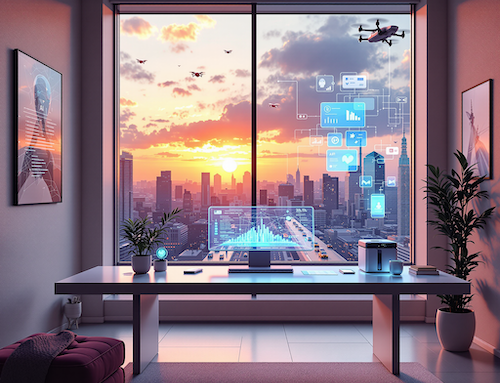How 2025 Became the Year of Autonomous AI
Introduction: The Dawn of Autonomous Intelligence
The year 2025 marks a historic milestone in the evolution of artificial intelligence, as AI agents have emerged as transformative forces in our world. These autonomous entities are no longer confined to performing routine tasks; they have evolved into intelligent partners capable of thinking, acting, and making decisions independently. The question on everyone’s mind is: What happens when machines begin to think, act, and decide on their own? The answer lies in the unprecedented capabilities of AI agents, which are reshaping industries, redefining work, and transforming daily life.
The Emergence of AI Agents: From Tools to Partners
The transition from traditional AI systems to autonomous AI agents represents a significant leap in technology. In 2025, advancements in neural networks and self-learning algorithms have enabled AI agents to operate with a level of autonomy never seen before. These agents are no longer just tools; they are partners in problem-solving and decision-making, capable of understanding user intent and executing complex tasks.
Key advancements in 2025 include:
- Advanced Neural Networks: AI agents now leverage sophisticated neural networks to process information, learn from data, and make decisions in real-time.
- Self-Learning Algorithms: Modern AI agents are equipped with self-learning algorithms that enable them to adapt to new situations and improve their performance over time.
- Multi-Agent Collaboration: The ability of AI agents to collaborate with each other and with humans has opened up new possibilities for solving complex problems.
The Technological Breakthroughs Behind Autonomous AI
The rise of autonomous AI in 2025 can be attributed to several technological breakthroughs that have enabled machines to operate with unprecedented autonomy. These innovations include:
Advanced Neural Networks
Neural networks have become the backbone of modern AI systems. In 2025, neural networks are more advanced than ever, with the ability to process vast amounts of data, recognize patterns, and make predictions with high accuracy. These networks are the foundation upon which autonomous AI agents are built.

Self-Learning Algorithms
Self-learning algorithms have revolutionized the way AI agents operate. These algorithms enable AI agents to learn from their environment, adapt to new situations, and improve their performance over time. This capability is crucial for autonomous AI, as it allows agents to function independently without constant human intervention.
Multi-Agent Collaboration
One of the most significant advancements in 2025 is the ability of AI agents to collaborate with each other and with humans. Multi-agent collaboration enables AI systems to tackle complex tasks that require coordination and cooperation. This capability has opened up new possibilities for industries such as healthcare, transportation, and education.
The Ethical Crossroads: Navigating Autonomous AI
As AI agents become more autonomous, ethical considerations have come to the forefront. The development and deployment of autonomous AI raise important questions about accountability, control, and the potential for misuse. In 2025, the focus is on establishing ethical frameworks and governance structures that ensure AI agents are developed and used responsibly.
Key ethical considerations include:
- Accountability: As AI agents make decisions and take actions, questions arise about who is accountable for their behavior. This is particularly important in scenarios where AI agents may cause harm, whether intentionally or unintentionally.
- Control: Ensuring that humans retain control over autonomous AI agents is crucial. This includes the ability to override AI decisions and ensure that AI systems align with human values and ethics.
- Transparency: Transparency in AI decision-making is essential for building trust in autonomous systems. Users need to understand how AI agents make decisions and how they can be held accountable for their actions.
The Future of Work: Human and AI Collaboration
The rise of autonomous AI agents is reshaping the nature of work. In 2025, the focus is on human-AI collaboration, where AI agents augment human capabilities rather than replacing them. This shift is transforming industries and redefining the skills and mindset required to thrive in an AI-driven world.
Key trends in the future of work include:
- Augmentation: AI agents are being used to augment human capabilities, enabling workers to focus on high-value tasks that require creativity, empathy, and problem-solving.
- Reskilling: As AI agents take over routine and repetitive tasks, there is a growing need for workers to develop new skills that complement AI capabilities.
- Collaboration: The future of work is increasingly about collaboration between humans and AI agents. This requires new tools, processes, and workflows that enable seamless interaction between humans and machines.

The World Redesigned: Everyday Life with Autonomous AI
Autonomous AI is transforming everyday life in ways that were unimaginable just a few years ago. From healthcare to transportation, AI agents are being used to solve complex problems and improve the quality of life for individuals around the world.
Key applications of autonomous AI in everyday life include:
- Healthcare: AI agents are being used to diagnose diseases, develop personalized treatment plans, and manage patient care. For example, AI-powered chatbots are being used to provide mental health support and guide patients through complex medical procedures.
- Transportation: Autonomous vehicles are revolutionizing transportation, reducing accidents, and improving traffic flow. AI agents are also being used to optimize logistics and supply chain management.
- Education: AI agents are being used to personalize learning experiences, provide real-time feedback, and support teachers in the classroom. This includes the use of AI-powered tutoring systems and adaptive learning platforms.
Conclusion: Embracing the Age of Autonomous AI
The rise of autonomous AI agents in 2025 represents a turning point in the history of technology. These agents are not just tools; they are partners that have the potential to transform every aspect of our lives. As we embrace this new era, it is important to remain mindful of the challenges and ethical considerations that come with autonomous AI.
The future of AI is not just about machines; it’s about what we can achieve together. By leveraging the power of autonomous AI agents, we can create a world that is more efficient, more creative, and more fulfilling for all.

